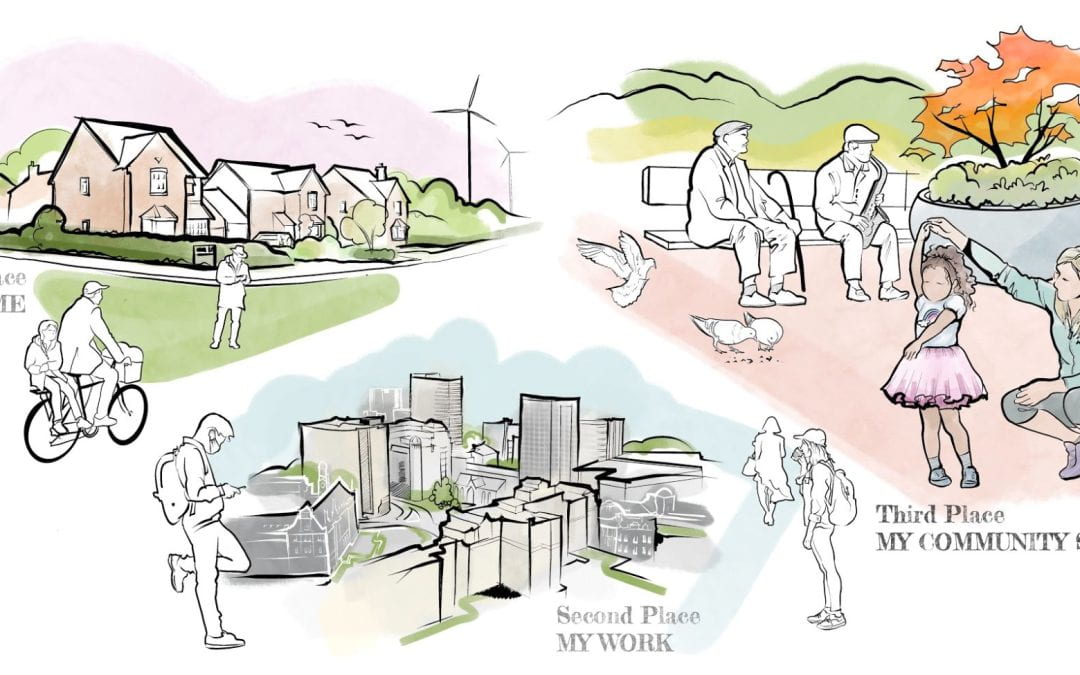Neuroscience Behind Dreams

February 10, 2021
As you sleep, stories are created in your head. These stories are called dreams. Have you ever wondered why they occur? I met with the Senior Editor at Scientific American Mind Magazine, Gary Stix, over Zoom, and asked him a few questions about dreams in general and even got him to help me analyze the dreams of some students and teachers at Hastings High School!
So, what happens in our brains when we dream? According to Mr. Stix, “[When we dream] there’s mental activity in certain areas of the brain during a stage of sleep called Rapid Eye Movement. We have about 4-5 dreams every night and they can last up to 20 minutes. There’s activity in parts of the brain that are not really in play as much as when we’re conscious. The frontal part of the brain—which is the part of the brian that deals with decision-making, consciousness, awareness of where we are and who we are, planning, etc.—is turned off and there are other parts of the brain that are predominating. There might be activity in areas that process sensory information or emotions that kind of mix everything up and what results is a dream. But, it doesn’t have the organizational aspect that you would have when you are conscious like we are now.”
But why do we dream? According to Mr. Stix, “That’s still a mystery. For the entire course of human civilization, and I’m sure before that, people have tried to interpret their dreams. But, from a scientific standpoint, there’s no good explanation for why we dream.”
If we don’t know why we dream and they often don’t really make sense, are dreams important at all? “Most people say that they forget their dreams, and there’s no real consequence to that,” said Mr. Stix. “People forget their dreams, and they go about their lives fine. If [dreams] were really important for some kind of processing of the previous day’s events to plan for the coming day, you’d remember the dream and you’d act upon it. Some people that say dreams have meaning—say, something very similar to Sigmund Freud; they say dreams are ways of expressing wishes that you have or wishes that have frustrated you.”
Mr. Stix, however, continued to say, “Nobody who is a clinical psychologist treating patients buys into that concept now, but it is similar in the sense that psychologists who think that dreams are important think that they can reveal underlying unconscious desires.”
Curious to know more about why we forget our dreams from the night before I asked if there was any particular reason why they are so hard to remember. Mr. Stix responded by saying, “I don’t know if there is a definitive answer to that. You don’t have to remember your dreams and you’re fine if you do, but there are cultures that train themselves to remember them. You can do that, too.”
Diving deeper into how dreams are looked at by different cultures, Mr. Stix continued, “there are some non-moderate cultures that perceive dreams as very important. They remember their dreams and they interpret them in various ways. It’s not like Freud, but some of these cultures do have different systems for interpreting their dreams. For example, they’ll impute meanings into symbols they see when dreaming.”
WHEN A DREAM FEELS REAL
One teacher I interviewed said, “I actually have really vivid dreams almost every night! I’ve done some research on my own because there are times my dreams are so vivid that when I wake up I don’t know if they actually happened or not. [For example,] I’ve had dreams that I was playing a sport, but forgot how to do a simple skill such as dribble a basketball.”
Why are some dreams so realistic? Mr. Stix said, “It’s possible that you’re also getting these other areas of the brain activated like the emotional centers. If you cross an emotion with something like a visual sensation, that is brought up while you’re sleeping, you get something that appears to be very real.”
Mr. Stix explained, “There are people throughout history that have said that dreams can predict the future, or that dreams are telling you meaningful things about your life. Those people are still around, and some of them are scientists. That’s one [group of people]. Then the other [group of people] is saying the executive portion of your brain, the frontal portion, is organizing stuff that is turned off so what you’re getting is processing that’s occurring from sensory areas, and emotional areas, and it’s all jumbled together. It comes out as this really bizarre kind of narrative that you find in dreams.”
ON DREAMS AND RANDOMNESS
One HHS freshman told me she had a dream predominantly focused on her soccer practice, but said it contained ample amounts of random information. For example, in her dream she got chased by someone she didn’t recognize, causing her to end up in a building she’s never seen before.
Do dreams switch location and context so quickly because of Rapid Eye Movement? Why are some of our dreams so random? After some thought, Mr. Stix replied, “I actually don’t know if that is a characteristic dream. You’re not dealing with reality. You’re dealing with brain waves that can produce sensations that are very fast or very slow.”
THE BAD DREAM
Nightmares are one of the most common types of dreams, and when I was asking people if they were willing to share dreams they have had, nightmares were one of the main topics of conversation. For example, one junior said, “I’ve had multiple dreams about being kidnapped and killed, but I always wake up right before I die.”
So, what triggers nightmares, and why can they actually scare us even after we wake up? Mr. Stix responded, “[Nightmares] are triggered by the activation of ‘fear centers’ deep in the brain… I think that’s probably interacting with emotional centers deep down in what’s called the limbic system that are involved with emotions.”
This led to a different, but similar, type of dream: stress dreams. One teacher of HHS shared a stress dream she gets at the beginning of every school year. She said, “Before the start of the school year, I always have school stress dreams where I am in a new building with hundreds of stairways, none taking me where I need to go. I show up late and unprepared to teach my classes and have absolutely no idea what I’m doing.”
Another teacher shared a stressful dream he had once and said, “I was on a train—my current age—taking the Geometry Regents. I was having a lot of trouble even though practice ones had been much easier. Then I ended up doing it in my old apartment in NYC, while my family was there…it was so upsetting that I wasn’t doing well that I ended up waking myself up. When I fell back asleep, I was at an airport that was flooded, and I was walking through a bunch of offices, but I then somehow ended up talking to someone about the proper paint to get for some job.”
I asked Mr. Stix if dreams could be affected by conscious feelings: “A lot of dreams are emotionally tinged. I think they can reflect underlying stress, but there are also dreams that can make you feel as though things are really good when in reality you’re in a very stressful situation. Then when you wake up and you’re like ‘oh I’m in this really stressful situation,’ but in the dream everything was really nice. So, it seems like the real world is having an impact on the emotional tone of the dreams that you’re having.”
At some point in our dreams can we connect to our subconscious selves? “Some of the conscious areas are turned off so you are keeping other areas active. There are things in those areas that could have to do with memories, they could have to do with random activation of those memories, and they all just get melded together. Those are unconscious things. They are emotions or they may be thoughts or perceptions that are activated during the dream state that you weren’t aware of. They come to the center of your dream-like awareness. So they are tapping into unconscious portions of brain activity.”
GROUNDHOG DAY DREAMS
I interviewed two students that shared that they both had recurring dreams. One of them said, “For years now I’ve been having this recurring dream that I get usually every few months. I’m on the beach with my friends and we’re all lying down on towels tanning. Then all of a sudden a huge wave comes, like a tsunami, that’s going to wipe out the whole city. I start screaming for everyone to get up and run, but everyone ignores me. I try to shake people awake and get their attention, but everyone on the beach just keeps tanning and swimming. No one notices but me. Then next thing I know the wave crushes me, and wipes everyone out. That’s when I wake up.”
A sophomore shared, “Last week I had the same dream two nights in a row. I was driving on a highway and a truck cut in front of me. I crashed and went through the windshield. After that I woke up and was really confused, especially the second night it happened.”
So, what’s happening to the brain that’s causing people to have the same dream repeatedly? Mr. Stix explained, “If you think about repeating dreams it may be that it is highlighting for you things that are important that you really aren’t aware of. That you still haven’t really dealt with in your life.”
So, Hastings students, the next time you go to sleep think about how the line between reality and dreams is complex, and different cultures have a variety of feelings about dreams. We’ve learned more about how the mind works when falling into an unconscious state, but we have also learned that there are multiple theories when it comes to perceiving how dreams work. One may take a scientific stance when thinking about dreams, but one may also look at them from a more meaningful or philosophical point of view. It’s up to you to decide how you want to.

















